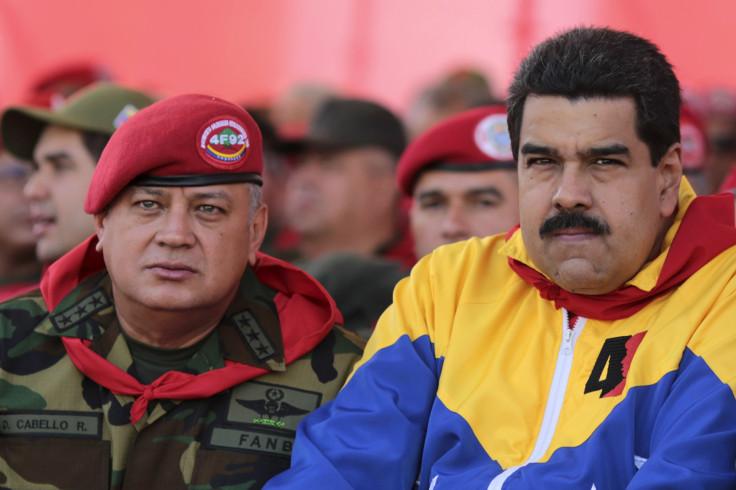
Venezuela's second-ranking politician Diosdado Cabello has threatened to sue foreign newspapers for defamation after the Wall Street Journal and ABC described reported allegations being leveled against him by U.S. law enforcement officials in connection with alleged involvement in narcotrafficking. Cabello has already sued three Venezuelan news outlets for reproducing information from those oversees papers, arguing that they shouldn’t have printed the accusations against him unless there was concrete evidence of his involvement proof.
“I’ve already sued here in Venezuela, but I’m also going to sue in Spain, and I’m also going to sue in the United States,” Cabello, Venezuela’s National Assembly Speaker said on an national TV broadcast on Sunday.“It cannot be that in Spain the press can do this – smear someone without any type of proof. In the United States this cannot happen.”
No smoking gun has been presented along with accusations that Cabello is connected to drug trafficking in Venezuela, despite reports that a defecting bodyguard would add to a pool of witness that will allegedly implicate the socialist leader. That defector, Leamsy Salazar alleged that Cabello ran the “Army of the Sun,” also known as Los Soles, allegedly a paramilitary organization that interfaces between the Venezuelan military and international traffickers of drugs, especially cocaine. Yet there’s little evidence Los Soles even exists appear to be nothing more than a rumor. Supporters of Cabello and the Maduro-led Chavista government were quick to condemn the articles as merely grasping at straws.
“These unverified accusations were subsequently published as fact by ABC España and other right-wing newspapers, prompting Cabello to seek legal action for libel,” wrote Lucas Koerner, for the pro-Chavismo blog Venezuela Analysis.
The Wall Street Journal, however, defended the article.
“There have been many indications that high-ranking officials in the Venezuelan government have been involved in drugs for a long time [....] Is there a direct link? I don’t know,” José de Córdoba, one of the WSJ authors, told Jorge Ramos on Fusion’s show “America.”
Is Diosdado the target of an unjustified smear campaign waged by U.S. law enforcement? Is he just trying to censor press around the world the way that his government has done domestically? Both may be true.
In 2005, under the leadership of Chavez, Diosdado, and others, Venezuela kicked the U.S. Drug Enforcement Agency (DEA) out of the country. Top Venezuelan officials, fighting off both real and possibly perceived coups, accused the DEA of collaborating with the CIA. It’s a strange accusation; it’s no secret that the two agencies share information. None the less, Diosdado argues that drug apprehensions have gone up since the DEA was ejected.
The U.S. has had long-running tensions with Venezuela. Add to that the DEA’s tenuous existence in Latin America (they’ve been kicked out of Bolivia, and scaled back in Colombia), and it’s conceivable that they’re extra motivated to take down Venezuelans that they -- perhaps genuinely -- believe are trafficking drugs. No matter the DEA’s motivations, finding proof of Cabello’s involvement would be a big win for the U.S. José de Córdoba's article seemed to imply just that in interviewers with protected sources inside U.S. law enforcement agencies.
“‘What does the U.S. want?’ said the recruiter, who has been working Venezuelan cases since 2008. ‘The U.S. wants proof, evidence of relations between politicians, military officers and functionaries with drug traffickers and terrorist groups,’” de Córdoba wrote.
© 2025 Latin Times. All rights reserved. Do not reproduce without permission.




